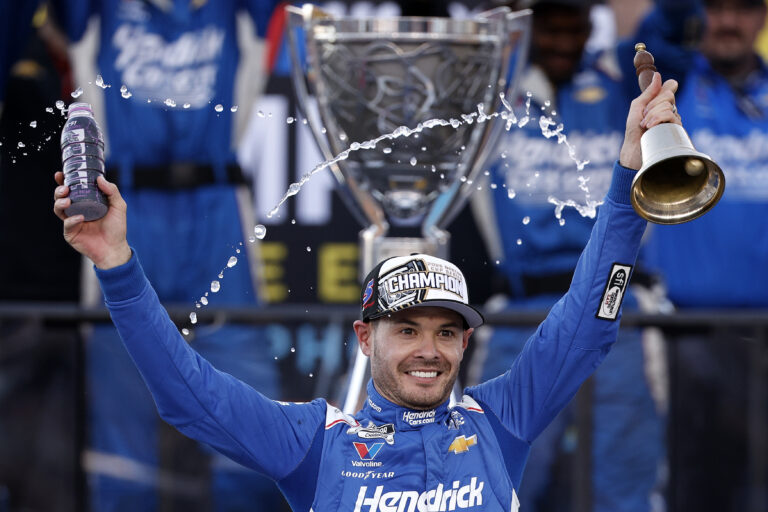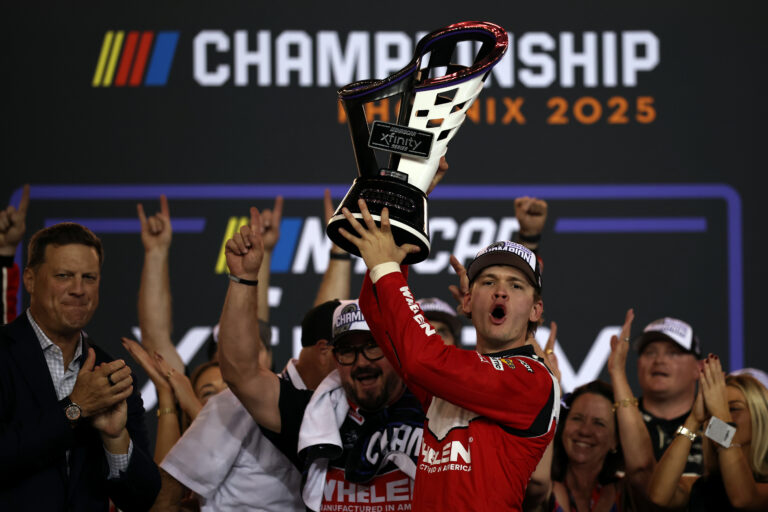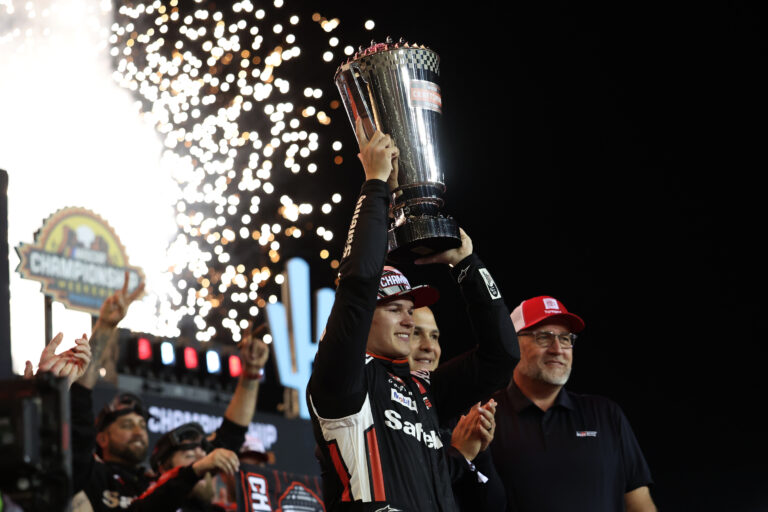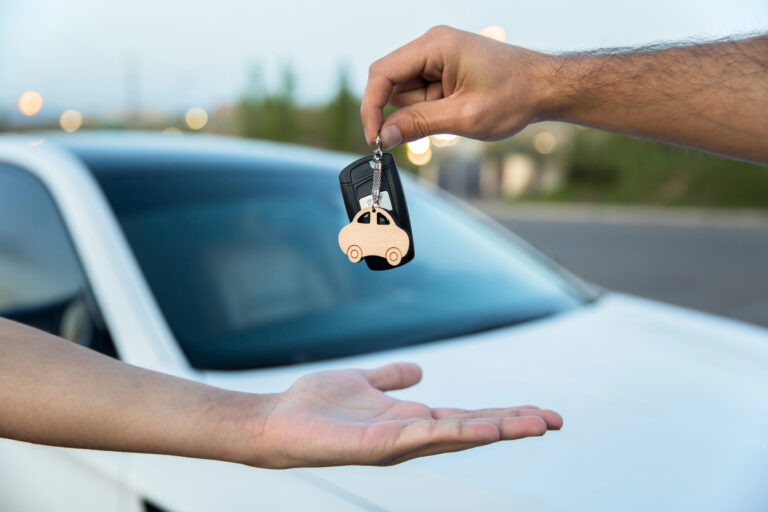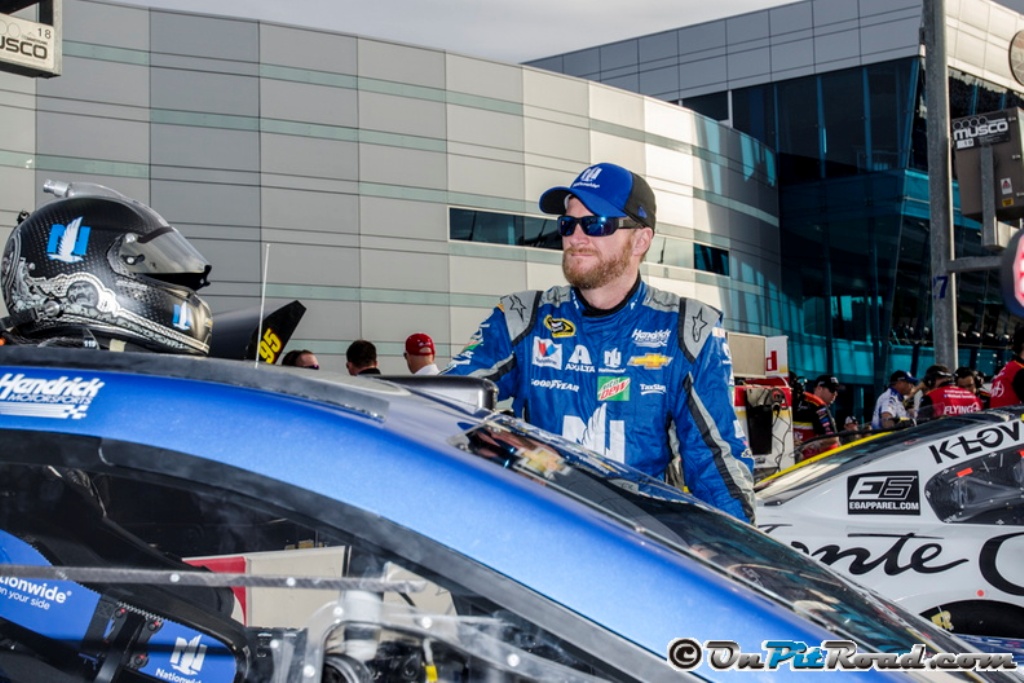
Photo Credit: Justin McFarland
NASCAR WIRE SERVICE
MARTINSVILLE, Va. – Dale Earnhardt Jr. called his spur-of-the-moment announcement to pledge his brain to scientific research a “no-brainer.”
Earnhardt made his intentions known with a tweet during a week off from NASCAR racing. He was inspired by similar pledges from soccer star Brandi Chastain and former Oakland Raiders Art Thoms, George Atkinson and George Buehler in honor of their late teammate Ken Stabler.
“I saw a story … we obviously had the week off, and I was just sitting around reading Twitter and saw that story about the Raiders donating their brains,” said Earnhardt, who removed himself from competition for two races in 2012 after suffering his second concussion in six weeks during a crash at Talladega.
“I just thought that was amazing that those guys did that in honor of their teammate (Stabler suffered from chronic traumatic encephalopathy). I read where Brandi had done that maybe a month ago. That just was really inspiring and I saw someone mention, I don’t even know what the context of the Tweet I was responding to was.”
Earnhardt’s response, however, went viral, and it earned admiration from a broad segment of followers and television viewers, after the networks picked up the story.
“I just was in the moment of conversation, and that’s sometimes the comfort that you find yourself in on Twitter sometimes, and I didn’t expect it to turn into the story it did, but, by all means, if it raises more awareness and inspires people to donate their brains and pledge their brains…” said Earnhardt, who said he is an organ donor.
“They don’t need just athletes. They need everybody. I’m going to give up all the organs that are worth anything when it’s over with. They can have it all.”
Earnhardt said he hopes research progresses to the point where science won’t need his brain, but his pledge is sincere nevertheless.
“It was a no-brainer for me,” Earnhardt said. “They don’t need just athletes. They don’t need people that just play sports. They need brains from all over. Again, like I say, hopefully I’m going to have like 40, 50 more years, and the science has progressed so much that they don’t need it. But if they do, it’s there.”

